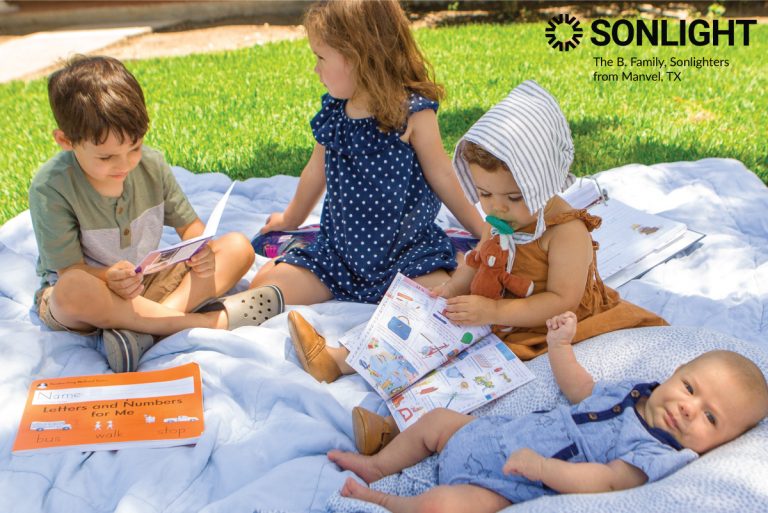If talking (and reading) to babies is the best way to help them learn grammar and vocabulary, should we talk to them all the time? What role does touch play in helping babies acquire language?
Focused human interaction is by far the best way to help babies learn to speak.
I pointed to the video embedded in this post and talked about the fact that TV programs and audio clips do not seem to help babies learn.
So what does? Simply focusing on your baby, interacting with him or her, and talking about what your baby is looking at, does wonders for helping your child learn to speak.
1. Touch helps children engage
Of course we love to cuddle with the adorable babies in our lives. As mothers, we have an irrepressible urge to hold, hug, and kiss our children. And that's great! Besides the emotional benefits such affection brings, touch is actually an important aspect in helping babies learn.
Researchers did a study about how a mother's responsiveness can encourage a baby to vocalize more. In the test group, whenever a baby vocalized, the mother either responded with a word or touched the baby. They found that the baby's vocalizing went up dramatically. Both those responses let the baby know that mom was engaged, which helped the baby continue exploring the world of words and babble.
So touch fosters language acquisition!
Now, think about how you read to toddlers and babies. You almost always take the child on your lap, hold the book in front of you, and interact with both the child and the book as you read. We want to help our kids engage with words, so we read, we talk, we touch, we point. All this helps children learn.
2. Baby talk is okay!
You know, I always thought that "baby-ese" was silly. Why not talk to a baby as you would a much older child? But what some experts say is that baby talk extends the sounds of the words that babies hear. So babies hear more of the vowels and more of the consonants.
To demonstrate, think about how you'd say this to a baby: "Oh, look at your pretty smile!" You'd probably draw the words out longer than you usually would. That actually helps the baby hear distinctions between the different sounds and words.
I think it's fascinating that this type of baby-talk is an almost universal phenomenon. Mothers all over the globe just naturally talk to their babies like this. It makes me wonder if there's more importance to it than I used to think.
3. There's no need to talk non-stop
One caveat about all this. Experts do not recommend that you take this information and talk at your baby constantly. They say babies' brains need time to process, synthesize, and pull all these things together. In other words, if we get overly concerned with vocabulary acquisition and talk to our babies non-stop, they don't have proper time to take it all in.
I think that makes a lot of sense. It's probably better to do a focused time with them and then allow them to just process and soak it all in.
This concept carries over into homeschooling in general. There is no need to do school for 10 hours a day so your children will learn more.
So much of what children learn comes through free play, when their minds are free to wander and explore however they'd like. Short, focused times of learning mixed with large amounts of free time for creativity and play: now that sounds like a recipe for learning (and a fun childhood)!
As I said last week, so much of this seems to come pretty naturally to parents; especially homeschoolers. We naturally talk to our babies, read to our children, give them time for free play, feed their imaginations and let them explore.
So please, carry on in your good work raising and teaching your children.
When your babies are 3-4 years old, choose Sonlight's no-pressure preschool program for a delightful foundation to more learning.
Want more encouragement?
Sign up for Sonlight's bi-weekly e-newsletter
You'll be encouraged by the words of founder Sarita Holzmann, inspired by real-life stories from other homeschoolers, pick up practical tips for the journey and more.











One Comment